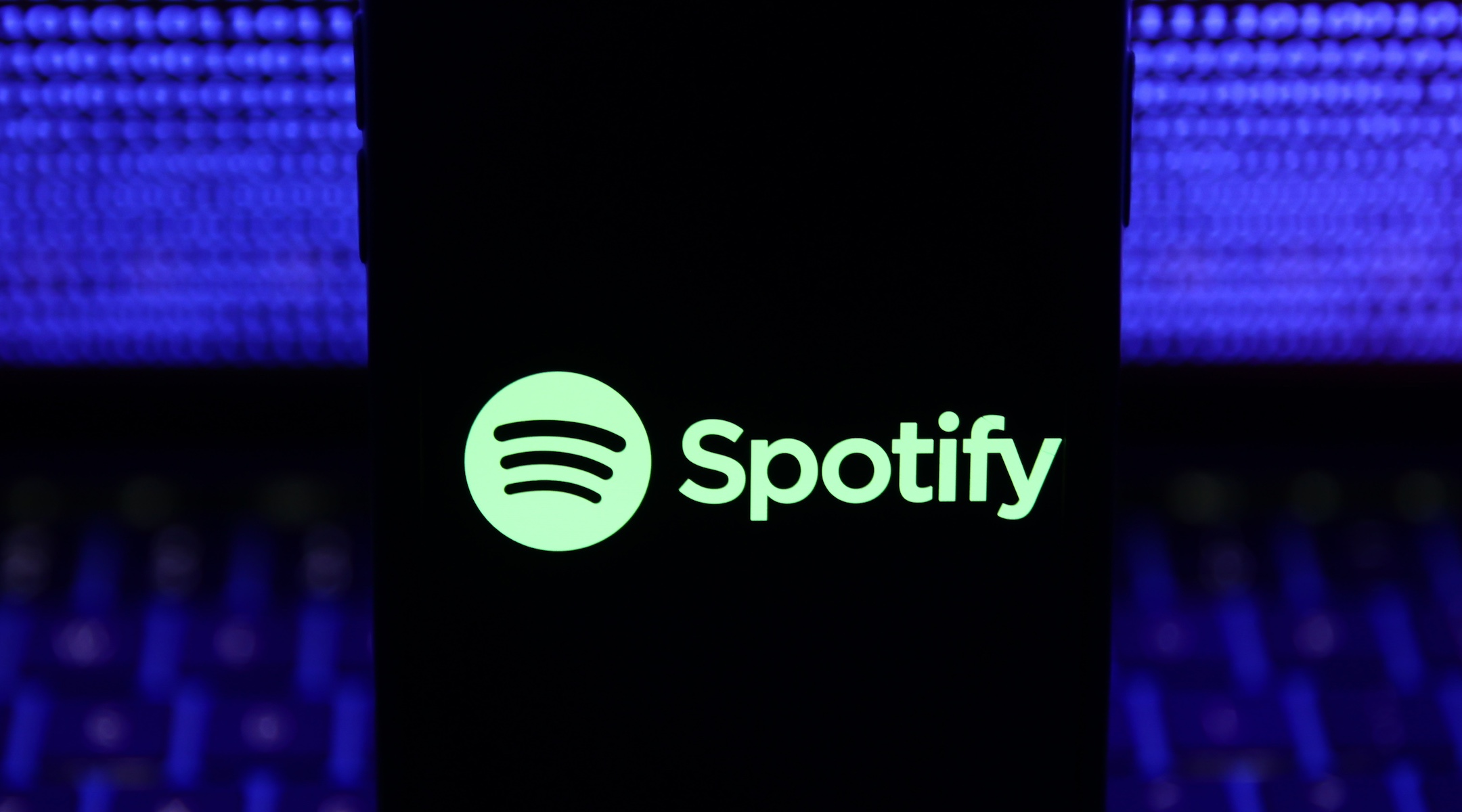John Zorn’s avant-garde Jewish music is finally on Spotify. His fans remain locked in debate.
In the past, and apparently on principle, Zorn did not work with streaming services

John Zorn performs in Damrosch Park at Lincoln Center, New York City, July 30, 2016. (Ebet Roberts/Redferns via Getty Images)
(JTA) — While the entire music industry went online, John Zorn made sure the albums released by his Tzadik Records label remained stubbornly unavailable on streaming platforms.
For fans of the pioneering Jewish musician, the recalcitrance was unsurprising. Zorn has long been one of the country’s most respected experimental musicians and composers, with much of his work inspired by Jewish themes, Zorn operates the influential label Tzadik Records, which has released dozens of innovative takes on Jewish music and melodies through its Radical Jewish Culture series.
The label, whose name is the Hebrew word for a righteous person, focuses on helping musicians who “find it difficult or impossible to release their music through more conventional channels.” Streaming services such as Spotify, Pandora and YouTube Music have dramatically undercut artists’ ability to be paid through album sales, and the understanding was that Zorn was keeping the albums Tzadik released — everything from solo sound-art pieces made fully on a computer to contemporary classical compositions to chaotic albums by boundary-pushing rock bands — offline.
That all changed in September. Rumors began spreading about the move to streaming on Facebook groups and Zorn fan pages a week before Tzadik’s catalog started showing up on streaming platforms at the end of the month. Now, most of the catalog is on Spotify.
“This felt like a very seismic shift,” said Yoshie Fruchter, a guitarist and familiar face in the New York Jewish music scene who has released music on Tzadik.
Some fans respected Zorn’s decision and the thoughtfulness they say he showed in the process. Zorn rarely gives interviews — he did not respond to Jewish Telegraphic Agency requests for comment — but his artist page on Spotify urges fans to continue to buy physical versions of his label’s releases: “If you enjoy the music on Tzadik we strongly urge you to further support the artist by purchasing our CDS [sic]. All packaging, artwork, notes, credits, and imagery are essential details to the artist’s vision on Tzadik. The CD medium will sound better, look better, and will give you a more complete artistic experience.”
Those issues have caused some Tzadik fans and contributors to react critically to the streaming move.
Tzadik releases “are all beautifully packaged and some of them have these really elaborate packages and books and things like that,” said Jon Madof, a Tzadik contributor and owner of his own avant-garde label. “You’re really not getting all of that if you hear it on Spotify.”
More pressing, the critics say, are the drawbacks of the contemporary streaming ecosystem, which are unchanged. For over a decade, musicians have complained about how Spotify and similar platforms have eroded artist income by paying well under a penny per listen.
Guitarist, composer and musicians’ rights activist Marc Ribot, himself a Tzadik contributor, trusts Zorn’s decision is what’s best for the label but remains critical of streaming platforms. In 2018, Tzadik’s music was mistakenly placed on streaming platforms against Zorn’s wishes for six months. In a blog post, Ribot wrote that over that time, Tzadik’s hundreds of albums netted a total of $300 in artist payments.
“You don’t need a supercomputer to see what the $300 dollars in 6 months ‘Age Of Streaming’ will do to Tzadik. That’s what ‘not viable’ means,” he wrote.

(Jakub Porzycki/NurPhoto via Getty Images)
But vinyl records and CDs can also be expensive. Self-professed Zorn-obsessive Mark Allender, who runs a Zorn fan site called Masada World, said that while many fellow fans are “on the ‘streaming is evil’ end of the political spectrum,” there are also “lots of fans who just don’t have a lot of money.” (Spotify’s unlimited premium service costs $10.99 per month, well under the price of a single vinyl record.)
And while some fans will be eager to dig into the catalog via streaming, others will remain happy buying the physical CDs and vinyl still on offer. Sarah Grosser, a recent convert to Zorn’s music who wrote and distributed a fanzine, “Days of Zorn,” based on her first impressions of 40 of Zorn’s albums, noted that Zorn’s fanbase is full of obsessive collectors. That’s why she thinks the streaming decision may have a minimal impact on Tzadik’s sales.
“Zorn is always attracting people as obsessive and perfectionist and detail-oriented as he is,” Grosser explained. “With social media, the word gets out on what the album is going to sound like. It’s not like people have to roll the dice anymore [with what a CD purchase might sound like] because there’s just so much communication.”
Zorn — who did not respond to requests for comment — has long been a central figure in New York’s “Downtown” music scene, a community of avant-garde musicians and artistic experimentalists centralized in Manhattan. His work is constantly evolving, from the free improv “game pieces” he helped pioneer in the 70s to his genre-bending style of “file-card composing” in the 80s and 90s. He has written or recorded rock, jazz, classical, world music and even metal.
No matter how idiosyncratic Tzadik has been, for some in the industry, the writing was long on the wall. Avant-garde pianist and Zorn collaborator Anthony Coleman mentioned the label ECM Records, which produces a similar range of eclectic music and finally put its catalog on streaming services in 2017. “It was very public and visible how much ECM held out. Once they gave in, I felt the days were numbered for Tzadik,” Coleman said.
One thing is for sure — online debate among Zorn fans will continue. Some claim that the fidelity of the songs on streaming platforms is inferior, others disagree. Some say Tzadik should start its own streaming platform or, if it must go online, to sell its music on sites that offer a bigger piece of the pie to artists, such as Bandcamp.
Today, Ribot recognizes that streaming is the reality artists live in and said that lawmakers should step up to regulate the system.
“The chief problem with Spotify isn’t Spotify itself, but Congress’ failure to regulate Google, YouTube and other ad and data mining based online mega corporations,” he said. “The National Labor Relations Board doesn’t recognize [musicians] as workers, or Spotify as our employer.”
Jon Madof, a Tzadik contributor and owner of his own avant-garde label, also pointed to Tzadik’s attention to physical details. (Madof has worked at 70 Faces Media, the Jewish Telegraphic Agency’s parent company.)
Tzadik releases “are all beautifully packaged and some of them have these really elaborate packages and books and things like that,” he said. “You’re really not getting all of that if you hear it on Spotify.”
Madof, who previously worked at 70 Faces Media, JTA’s parent company, and also helps musicians with marketing their work, said that streaming and physical purchases can have a potential symbiosis: Spotify can be “the introduction that kind of brings you into the world” of Zorn’s music, making one want to then buy physical versions of the music as a devoted fan.
And ultimately, Madof has confidence that Zorn thought through what the best decision could be for the community that has coalesced around him.
“Everything that [Zorn] does is thoughtful, and everything he does always has a community of musicians in mind,” Madof said.
This article originally appeared on JTA.org.















